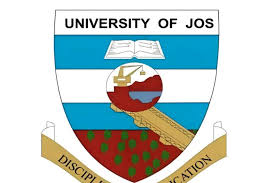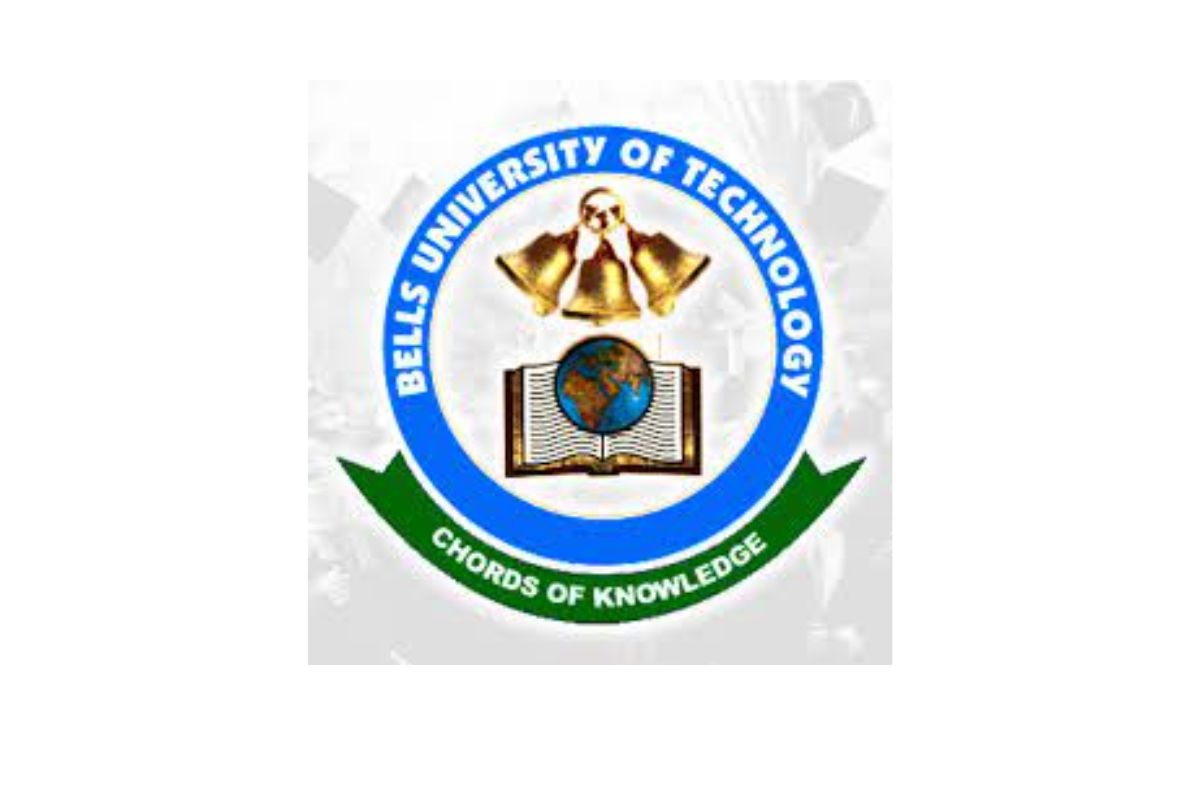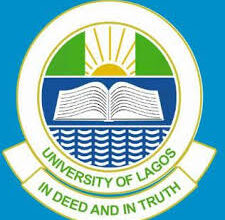Caleb University, a prominent private university in Imota, Lagos State, Nigeria, is a symbol of moral rectitude and scholastic brilliance. Since its founding in 2007, the institution has distinguished itself by promoting high-quality instruction, creative research, and the development of entrepreneurs. It is a popular choice for students in Nigeria and beyond because of its modern facilities and calm campus atmosphere, which create the perfect learning environment. The institution’s mission is to generate globally competitive graduates who uphold moral principles and make significant contributions to society.
Knowing Caleb University’s financial structure, especially about the tuition, is essential to studying there. Being a private university, it depends on tuition and related fees to keep up its excellent infrastructure and educational standards. To guarantee that students obtain a well-rounded education, these fees are carefully designed to cover a variety of crucial services, such as library development, ICT facilities, sports, and practical sessions. .
School Fees For Caleb University In The New Session
The tuition for various programs, housing expenses, and other fees are all broken down in depth in this article on Caleb University’s tuition. Timelines, payment methods, and the consequences of non-compliance are also covered. This guide’s thorough insights are intended to help current and potential students, together with their families, make well-informed financial decisions for a smooth academic experience at Caleb University.
Tuition Fees Breakdown
Caleb University’s tuition costs are set up to accommodate the wide range of academic programs that are available across all of its colleges. These fees cover a range of expenses related to providing top-notch instruction and services, guaranteeing that students have a thorough and rewarding educational experience. Although the total costs may differ based on the course of study, they are thoughtfully crafted to represent the tools and resources offered to students in every field.
- Professional and Practical Programs
Students enrolled in professional programs such as Accounting, Business Administration, and Mass Communication have a tuition fee of ₦214,500 per semester. This cost covers academic instruction, infrastructural development, and practical sessions designed to prepare students for professional success. In addition, students in these programs pay for specific resources like Turnitin access for plagiarism checks, ICT facilities, and professional practical fees, which together enhance their academic rigor and career readiness. - Technical Programs (Architecture and Computer Science)
Programs like Architecture and Computer Science have slightly higher tuition fees, amounting to ₦219,500 per semester. These programs require specialized facilities and practical training, contributing to their slightly elevated cost. For instance, Architecture students use design studios and modeling equipment, while Computer Science students benefit from high-tech labs equipped with cutting-edge software and hardware to facilitate hands-on learning. - General Academic Programs
Other academic programs at Caleb University, such as Sociology, History, and International Relations, have a tuition fee of ₦204,500 per semester. While these programs do not require intensive technical resources, they still provide access to modern classrooms, well-equipped libraries, and ICT facilities, ensuring students can learn in a conducive environment. - Infrastructural Development and Student Resources
Part of the tuition fees is allocated for infrastructural development, which includes maintaining and upgrading campus facilities like classrooms, hostels, sports arenas, and recreational areas. Fees also cover student handbooks, identity cards, and sports activities, ensuring students enjoy a holistic university experience beyond academics. - Practical and Professional Fees
Many programs at Caleb University incorporate practical sessions and professional training into their curriculum. Students are charged practical fees to cover laboratory use, field trips, and other hands-on activities that complement classroom learning. For professional courses, additional fees ensure students have access to industry-standard tools and exposure to real-world scenarios. - ICT and Digital Services
A significant portion of the fees goes towards providing robust ICT services. This includes campus-wide internet access, e-learning platforms, and training in digital tools. These services are essential in fostering tech-savvy graduates who can navigate the demands of a digital world effectively. - Payment Flexibility
Caleb University recognizes the financial challenges faced by some families and offers a flexible payment plan. Students can pay their tuition in installments, with an initial payment of 50% at the start of the semester, followed by two subsequent payments of 25% each. This system allows families to manage their finances more conveniently without compromising their academic pursuits. - Value for Investment
While private university education may appear costly, Caleb University ensures students receive excellent value for their investment. The comprehensive tuition fees cover not only academic training but also co-curricular activities, mentorship, and access to an extensive network of alumni and industry professionals. These elements contribute significantly to the personal and professional development of students, making the fees a worthwhile investment in their future.
Additional Fees
In addition to tuition and program-specific costs, Caleb University imposes a range of additional fees to enhance the overall student experience. These fees cater to various aspects of student welfare, extracurricular activities, and infrastructural development, ensuring that learners have access to the resources and services necessary for a well-rounded education. While these fees are supplementary to tuition, they play an essential role in maintaining the institution’s high standards.
Medical Care Fee
Health and wellness are paramount to the university experience, and Caleb University prioritizes this by including a medical care fee of ₦15,000 per semester. This fee ensures students have access to basic medical services, routine check-ups, and emergency care on campus. The university’s health center is staffed with qualified medical professionals and equipped to handle minor health issues, allowing students to focus on their studies without concerns about their well-being.ICT Training and Certification Fee
In today’s digital age, proficiency in technology is non-negotiable. Caleb University incorporates an ICT training and global certification fee of ₦30,000 into its additional charges. This fee covers training sessions on industry-relevant software and tools, preparing students for tech-savvy roles in their respective fields. The certification awarded upon completion of these training programs enhances students’ employability by validating their digital skills in the global job market.
Independent Power Project Fee
To provide uninterrupted electricity on campus, the university charges an Independent Power Project fee of ₦40,000. A reliable power supply is essential for maintaining smooth academic activities, from powering lecture halls and laboratories to ensuring students’ comfort in hostels. This fee contributes to the maintenance and operation of the institution’s power infrastructure, reflecting Caleb University’s commitment to offering a conducive learning environment.
Entrepreneurship Fee
In line with its goal of fostering entrepreneurial skills among students, the university levies an entrepreneurship fee of ₦10,000. This charge supports workshops, mentorship programs, and business incubation initiatives aimed at equipping students with the skills to start and manage their ventures. By nurturing an entrepreneurial mindset, Caleb University empowers students to become job creators rather than job seekers.
Parents Forum Fee
The Parents Forum Fee of ₦10,000 is a unique charge that strengthens the relationship between the university and students’ families. This fee supports the activities of the Parents Forum, a platform for parents to collaborate with the university in decision-making processes and student welfare initiatives. The forum plays a vital role in ensuring a balanced and supportive academic environment for all students.
Payment Structure
Caleb University recognizes the financial obligations that come with pursuing higher education, especially in a private institution. To ease the financial burden on students and their families, the university has implemented a flexible payment structure that allows fees to be paid in installments. This structure ensures accessibility while maintaining the institution’s commitment to high-quality education and services.
Installment-Based Payments
The payment structure divides the total fees into three installments. The first installment, amounting to 50% of the total fees, is required at the beginning of the first semester. This initial payment secures the student’s enrollment and grants access to academic resources and services. The remaining 50% is split into two equal installments of 25% each, to be paid later in the academic year. This approach provides financial flexibility for families, enabling them to manage their budgets effectively without sacrificing educational goals.
First Installment Requirements
The first installment serves as a confirmation of the student’s commitment to the academic year. It covers essential expenses such as tuition, infrastructural development, and access to learning resources. Students are required to make this payment before resumption to complete their registration process. Failure to meet this initial requirement may result in delays or restrictions on accessing university facilities.
Second Installment Timeline
The second installment, which constitutes 25% of the total fees, is due midway through the first semester. This payment ensures continuity in accessing academic and non-academic services. By spreading the payment timeline, the university reduces the immediate financial pressure on families while ensuring that operational costs are met throughout the semester.
Final Installment Schedule
The final installment is due at the beginning of the second semester. This payment allows students to continue their studies without disruption, covering the costs associated with the new semester’s activities and resources. The structured timeline ensures that students and their families can plan for these payments well in advance, minimizing financial stress.
Flexibility for Special Circumstances
Caleb University accommodates special circumstances where families face financial difficulties. By communicating with the university’s finance office, students may request an adjustment in the payment schedule or other arrangements. This flexibility demonstrates the institution’s understanding of varying financial capabilities and its commitment to supporting students’ educational pursuits.
Payment Methods
The university provides various payment methods to simplify the process for students and parents. Payments can be made via bank transfers, online portals, or designated bank branches. Students are encouraged to ensure they use the correct account details for each category of fees, as outlined by the university, to avoid delays or errors in processing.
Timely Payment Incentives
To encourage prompt payments, Caleb University offers certain incentives for students who pay their fees in full at the beginning of the academic year. These incentives may include discounts or priority access to limited facilities, such as preferred hostel accommodations. Timely payments also help avoid penalties that may be imposed for late payments, ensuring a smooth academic experience.
Non-Compliance Implications
Failure to adhere to the payment schedule can have serious consequences for students. Late payments may attract penalties and students who fail to meet their financial obligations risk being barred from examinations or losing access to university services. By emphasizing the importance of timely payments, Caleb University ensures the seamless operation of its academic and administrative processes.
Implications of Non-Payment
Timely payment of tuition and associated fees is a critical aspect of a student’s academic journey at Caleb University. Non-payment or delays in meeting financial obligations can have significant implications that affect a student’s ability to fully engage in academic and extracurricular activities. The university enforces strict policies to ensure compliance with payment schedules while maintaining its operational efficiency.
Restricted Access to Academic Resources
One immediate consequence of non-payment is the restriction of access to essential academic resources. Students who fail to pay their fees on time may be denied entry to lecture halls, libraries, and laboratories. This restriction hampers their ability to participate in academic activities, including practical sessions and group projects, which are vital for comprehensive learning and skill acquisition.
Ineligibility for Examinations
Students who do not meet their financial obligations may be prohibited from sitting for semester examinations. This policy is enforced to maintain fairness and accountability among students who comply with the payment terms. Missing examinations not only disrupts the academic progress of affected students but also increases the financial burden as they may need to repeat courses or semesters to fulfill graduation requirements.
Penalties and Additional Charges
Late payments often attract penalties or additional charges, further increasing the financial strain on students and their families. These penalties are intended to encourage timely compliance and offset any operational challenges caused by delayed payments. The additional charges can accumulate quickly, making it even more challenging for students to clear their outstanding balances.
Risk of Deregistration
In extreme cases, persistent non-payment can lead to deregistration, where the student is officially removed from the university’s enrollment list. Deregistration is a last resort and serves as a firm reminder of the importance of adhering to the financial policies of the institution. Reinstatement after deregistration may involve additional fees and administrative hurdles, making it a costly and time-consuming process.
To avoid these implications, students and their families are encouraged to communicate proactively with the university’s finance office if they anticipate challenges in meeting payment deadlines. Caleb University’s flexible payment plans and willingness to consider special circumstances demonstrate its commitment to supporting students while upholding the integrity of its financial and academic policies.
Conclusion
The way Caleb University handles tuition and related costs demonstrates its dedication to offering top-notch instruction while preserving equity and accessibility for students from a range of socioeconomic backgrounds. Every element of the educational process, from academic resources to infrastructure development, is guaranteed to be sufficiently funded thanks to the organized fee breakdown. The institution meets the unique demands of its students by providing a variety of programs with customized financial requirements, guaranteeing that they get the most out of their investment.
The institution’s emphasis on prompt compliance, flexible payment plans, and additional fees highlight its commitment to fostering a positive and well-rounded learning environment. Services like medical care, business programs, and ICT training enhance students’ academic experiences and set them up for success in their personal and professional lives. Additionally, the university’s appreciation of the financial realities that many families experience is demonstrated by the installment-based payment plan, which provides them with a way to fulfill their educational goals without experiencing excessive financial strain.
Caleb University’s finance practices ultimately support its mission to produce graduates who are globally competitive and who exhibit excellence, honesty, and creativity. In addition to maintaining its high standards, the institution makes sure that students concentrate on what matters—their education and future success—by encouraging openness and flexibility in its price schedule. Knowing that Caleb University is dedicated to their development gives both present and prospective students the confidence to pursue their academic goals.







